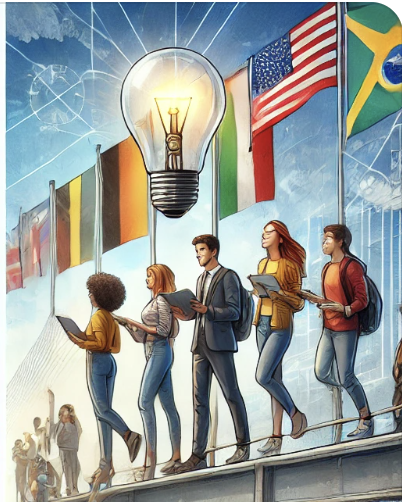Over the past few weeks, sessions 2, 3, and 4 provided invaluable insights that have enhanced my understanding of democratic engagement within an international context. Although the topics covered were predominantly scientific, they hold relevance for my course in International Relations, particularly in developing a broader, culturally inclusive perspective.
In Week 2, the discussion on genes and the CRISPR technology was eye-opening, as it demonstrated how genetic science might impact global power structures. CRISPR technology, a method for gene editing, could enable countries to innovate in agriculture, healthcare, and more, leading to potential economic and trade advantages on the world stage. This session deepened my awareness of how nations’ scientific advancements can influence their global standing, resonating with the themes of power and resource control in IR. Moreover, it highlighted the cultural and ethical variations in how societies perceive genetic modification, urging me to think beyond a Eurocentric framework and recognize the global diversity in scientific ethics.
Week 3 offered an enlightening view of education through the lens of Rwanda’s approach to entrepreneurship and long-term strategic development, such as their Vision 2025 initiative. Learning about Rwanda’s structured, community-focused education and its emphasis on entrepreneurship broadened my understanding of how different nations address societal challenges. The Rwandan case underscored the importance of grassroots community engagement and localized solutions, reminding me of the necessity to adapt policies to cultural contexts. Witnessing the emphasis on hierarchy and project endorsement in Rwandan education provided valuable lessons on adapting initiatives to meet the needs of specific communities.
By Week 4, the focus shifted to sustainability. I was introduced to the concept of sustainability as a core principle in educational and societal development. This session emphasized how sustainable initiatives require collaboration across disciplines, a principle I see mirrored in international trade policies. The European Union’s Green Deal, for example, is structured to enforce environmental standards, impacting trade relations globally. Such policies illustrate how sustainability shapes global governance and economic structures—key areas within International Relations.
In the final week, I was particularly inspired by the story of Dr. Pooja Basnett. Her journey, which began in a humble village setting, resonated with my own background and highlighted the value of resilience and determination. Dr. Basnett’s achievements, especially in a male-dominated and complex field, underscored the power of education in transforming lives, particularly for marginalized groups. Learning from her experiences provided me with a strong example of success through hard work and reinforced the importance of representation and diversity within academia.
To conclude, these sessions have profoundly influenced my critical thinking and my understanding of international relations from a culturally diverse standpoint. The knowledge and skills I’ve gained will aid in my exploration of Vietnamese culture for my upcoming report.
Overall, these workshops have reinforced my ability to approach global issues with an informed, inclusive perspective, preparing me to engage with complex international challenges thoughtfully and independently.
Umar Faruk
